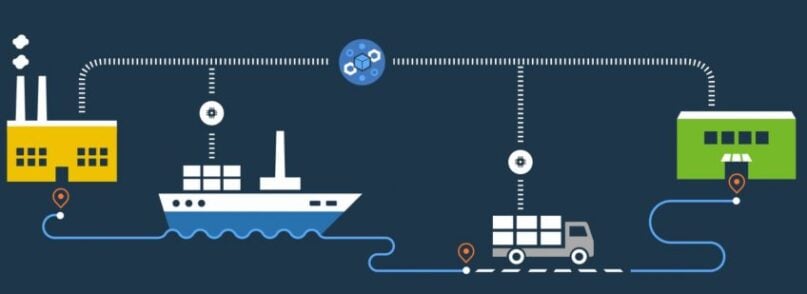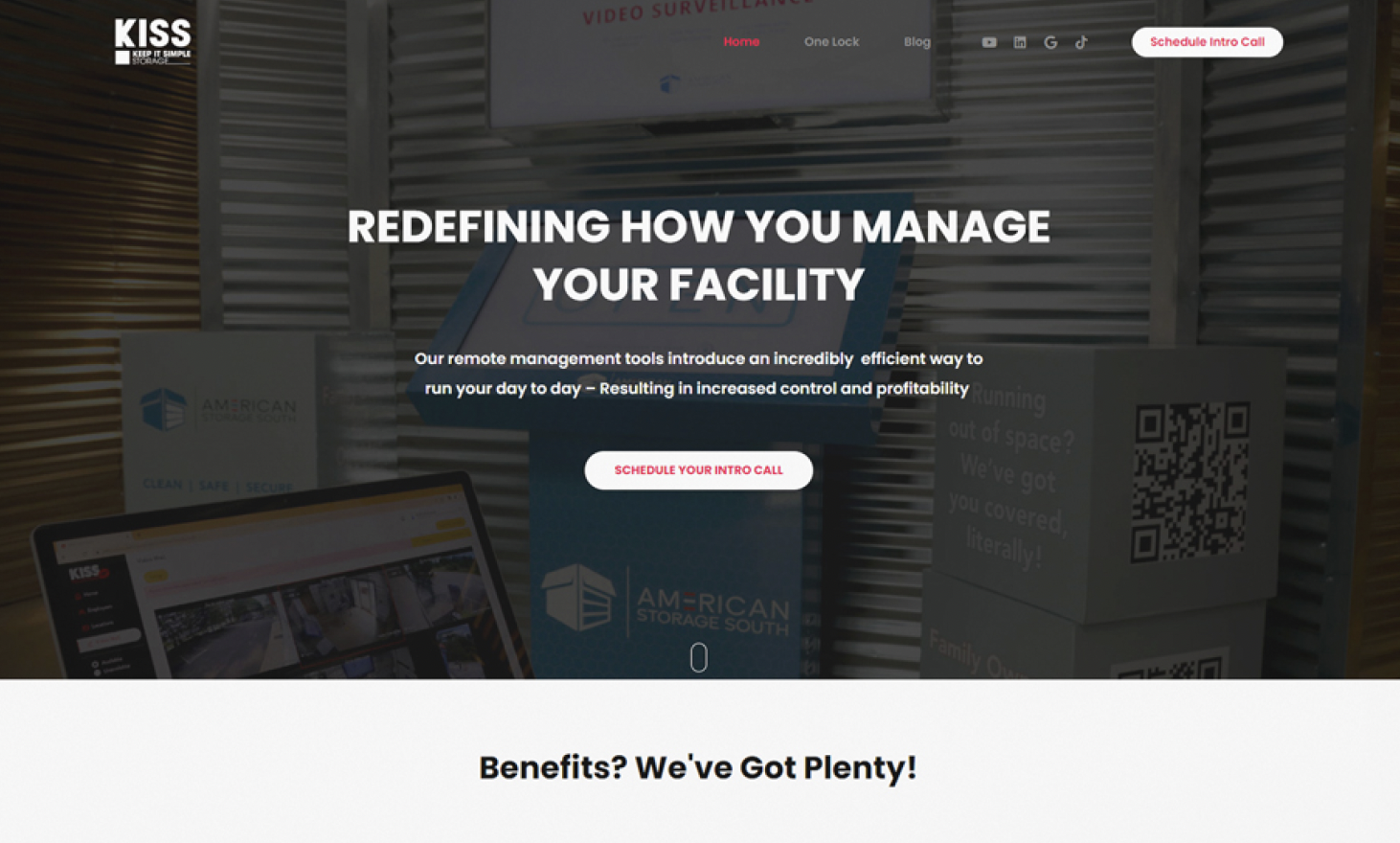- Developers
- Developer Blog
- Blockchain Development
- How to Integrate a Supply Chain Blockchain for Enterprise Company

profile

By Aran Davies
Verified Expert
8 years of experience
Aran Davies is a full-stack software development engineer and tech writer with experience in Web and Mobile technologies. He is a tech nomad and has seen it all.
Wondering how you implement a supply chain blockchain for enterprise company? Let’s dive deep and examine the steps, which are as follows:
1. Plan for success
You expect significant gains from the use of blockchain supply chain solutions, therefore, it’s a high-importance project. Plan it well. Start by onboarding a project manager (PM), a software architect, and a team of business analysts (BAs).
Onboard people with experience in implementing blockchain solutions.
What would your planning cover? It should encompass the following:
- Defining the project requirements;
- The type of blockchain you would use;
- A hosting arrangement for your blockchain network;
- The technology stack;
- Onboarding a development team;
- Estimating the project.
Consult our guide “What to plan for when undertaking blockchain software development?” for this planning exercise.
2. Decide on the type of blockchain you would use
Your enterprise supply chain solution will process sensitive data. You can’t afford to expose sensitive information to any unauthorized persons or hackers. While much of the discussions surrounding blockchain focus on public blockchain networks like Bitcoin, you can’t use them for this kind of project.
Public blockchain networks allow anonymous or pseudonymous users, they maintain absolute transparency for all transactions, and finally, they don’t scale well.
You can only allow trusted participants to access your enterprise network, moreover, you need to implement access control.
Obviously, you need scalability too, so an enterprise blockchain is appropriate for your requirements. This I explained in “Public vs private (permissioned) blockchain comparison”.

Get a complimentary discovery call and a free ballpark estimate for your project
Trusted by 100x of startups and companies like
3. Plan where you will host your blockchain network
Do you want to focus all your efforts on the development lifecycle, or do you want to get bogged down with infrastructure management? Well, I’m guessing that you would like to spend as little time as possible on your infrastructure management.
Therefore, I recommend that you look for a cloud hosting arrangement for your blockchain network. This is good news since cloud computing giants offer their “Blockchain as a Service” (BaaS) platforms for exatly this purpose. The following are a few examples:
- “Blockchain on AWS”;
- SAP Cloud Platform “Blockchain as a Service”;
- “Microsoft Blockchain on Azure”;
- “IBM Blockchain Platform”.
These platforms provide services to uncover the hidden potential of blockchain by creating smart workflows, enabling efficient integration with new technologies such as IoT and artificial intelligence, and introducing efficient business processes throughout the value chain.
Read our guide “Best blockchain network hosts – Ethereum – Amazon etc.” to learn more about these platforms.
4. Decide on the technology stack you will use
What kind of apps are you developing? This will drive your choice of the technology stack, e.g.:
- js works well if you are developing a web app.
- If you plan to launch mobile apps, then I recommend that you develop native apps. You should use Java for native Android development and Swift for native iOS development.
This brings us to the question of which enterprise blockchain framework you should use. You have several choices, e.g., Hyperledger Fabric, R3 Corda, etc.
I recommend that you use Hyperledger Fabric, which offers the following advantages:
- Hyperledger Fabric, or Fabric as we commonly call it, is an open-source project from the Hyperledger Consortium.
- Technology giants like IBM, Intel, SAP, CISCO, etc. participate in this industry alliance, therefore, Fabric benifits from excellent developer support.
- Fabric has a modular architecture so you can build pluggable components.
- This enterprise blockchain framework has a “Hardware Security Model” (HSM) for digital keys, which offers higher security for sensitive apps.
- You can build a permissioned blockchain using this open-source framework.
- Fabric offers robust performance and scalability.
- Do you have sensitive supply chain data to process? Fabric has you well-covered here with its “Channel” technology for sensitive data, which uses data partitioning to ensure data security.
- Fabric offers robust querying capabilities.
Our guide “Pros and cons of Hyperledger Fabric for blockchain networks” explains the advantages of this industry-agnostic framework in greater detail.
5. Estimate your project
You ought to estimate the cost of your blockchain supply chain solution implementation project, therefore, I will now walk you through the various cost elements. These are as follows:
- Software infrastructure costs;
- Tooling costs for any licensed tool that you use;
- Development manpower costs;
- Other administrative costs.
Read our guide “How much does it cost to build a blockchain project?” to learn how you can estimate this project.
6. Form your development team
It’s time to form your development team. Which roles do you need to onboard? I recommend the following:
- UI designers for designing interactive and user-friendly application user interfaces.
For mobile apps, the design should be according to the set guidelines of the App store, i.e. Material Design Guidelines for Android apps and Human Interface Guidelines for iOS apps;
- js developers if you plan to build a web app.
Your web developers should be experts in using web app development javascript frameworks like Angular, Vue.js, etc. to build secure and robust web apps efficiently;
- Java developers with native Android development experience, if you plan to launch an Android app.
Nowadays, the Kotlin programming language is also gaining popularity among Android developers due to its safer code structure and seamless integration with Android IDE;
Hire expert developers for your next project
1,200 top developers
us since 2016
- Swift programmers, if you plan to develop a native iOS app.
Swift is recommended by Apple for iOS apps. Your iOS developers can make use of its extensive developer community that is continuously improving Swift library support;
- Hybrid app developers to build a code base that can run in native containers to allow it to run on Apple or Android devices.
Hybrid app developers can help you target a larger audience by developing apps through cross-platform frameworks like Flutter, React Native, etc.;
- Hyperledger Fabric developers that know how to code “chaincodes”, i.e., smart contracts in Fabric parlance;
- Testers to perform thorough quality assurance of your blockchain supply chain solution.
Your QA professionals should be experts in using tools for testing web and mobile applications. For example, Selenium for web applications, Espresso for Android apps, and XCTest for iOS apps;
- DevOps engineers proficient in version control, configuration management, automated code app deployment, etc. They should also be experts app testing using the security and quality-assurance tools, and other cloud computing services provided by your cloud provider.
Check out our guide “How to find a good software developer” if you need help to onboard competent developers.
7. Install the relevant tools and configure your blockchain network
For the purpose of this guide, I assume that you are using the “IBM Blockchain Platform” and the Hyperledger Fabric Node.js SDK to build your blockchain network. Read “Hyperledger Fabric Client (HFC) SDK for Node.js” for instructions on how to set up this SDK.
You can do the following with this SDK:
- Communicate with the blockchain network using the APIs as part of this SDK.
- Configure your network using the Fabric Node.js SDK GitHub instructions.
- Submit transactions to the Fabric chaincodes and query the blockchain ledger.
- Create “channels” for sensitive data.
- Create the various kinds of nodes you need.
- Deploy chaincodes.
- Monitor block and transaction-level events.
Take the following steps on the “IBM Blockchain Platform”:
- Read the instructions in “Getting started with IBM Blockchain Platform”.
- Deploy the “IBM Blockchain Platform”.
- Install cURL.
- Follow the instructions in “Prerequisites”, and download the Fabric sample code.
- Install js and NPM.
- Follow the instructions in “Install samples, binaries and Docker images”, and install the Fabric sample code.
8. Write your chaincodes
We are almost finished. Chaincodes encapsulate the business logic of your blockchain supply chain solution, therefore, you need to code them during this stage.
Thankfully, the “IBM Blockchain Platform” offers excellent guides to develop chaincodes, and you can find them in “Writing smart contracts”.
9. Review your chaincodes
Smart contracts have a unique feature. You can’t modify them after you deploy them, therefore, you need to be doubly sure about code quality.
Testing is important, however, it can’t identify all bugs. You ought to review your chaincodes.
Take the following steps:
- Ensure that you review the right version of the code, and conduct a static code analysis.
- Check for common bugs like reentrancy, shadowing of variables, overflows, incorrect signature validation, etc.
- Verify whether you have coded chaincodes in line with your functional requirements.
- Track all bugs and review comments, subsequently, follow through to ensure a satisfactory closure of all of them.
Read our guide “Undertaking a blockchain code audit and its importance” for more details.
10. Test your chaincodes and deploy them
“IBM Blockchain Platform” offers robust documentation about its Hyperledger Fabric “Continuous Integration” (CI) process. Read “Getting to know the Hyperledger Fabric continuous integration (CI) process”, and learn the following:
Hire expert developers for your next project
- How to use the Docker containers for deployment;
- How to use Jenkins for CI;
- The “build”, testing, and deployment processes.
Now that you have learned how to use this CI process, take the following steps:
- Test your chaincodes, and deploy them.
- Add the network API endpoints to your app.
- Prove the authenticity of the app by enrolling it.
- Use the client-side certificates you generated during the enrolment process, and register the app.
Planning to transform your enterprise supply chain operations with the help of blockchain?
Blockchain is a niche technology, therefore, most projects involving blockchain implementation tend to be complex. You are planning to implement blockchain to transform your supply chain operations, therefore, you have a high-impartance project to complete.
At this point, you are likely looking for high-quality technical resources to help you build an efficient blockchain supply chain solution. We advise you to partner with a software development company.
Hybrid software development companies experienced in developing blockchain supply chain solutions will save you from the many pitfalls that come with hiring and managing remote freelance developers, as well as the ones that come with bad development work.
As software developers go through a strict vetting process before they become part of a development team in any software company, you can be sure that top-quality software engineering talent is working on your blockchain supply chain application. Added to this, the top hybrid development companies actually guarantee the work of their developers so if you are not happy you don’t pay!
For a complex project like a blockchain supply chain, this guarantee is of the utmost importance and could really save your project from disaster, so we advise you to strongly consider this option.
Read our guide “How to find the best software development company?” for more information on how to find such a trustworthy development partner.
Still unsure about where to find a great and experienced blockchain development partner? Reach out to us at DevTeam.Space by taking a moment to tell us a few things about your project requirements by filling out this quick form.
Frequently Asked Questions
The most obvious example would be Ethereum. However, Ethereum’s network can sometimes find itself overloaded due to its popularity. The best solution would be to create your own private blockchain network.
Blockchain can be used to store vital data relating to transactions. Smart contracts can also be created on the blockchain for the automation of processes such as financial services, etc.
Blockchain is a database technology while a supply chain is a series of material transfers made so that consumer goods reach their desired destination.
Blockchain technology in the supply chain is avidly being used for tasks like,
Effective and trusted vaccine distribution,
Creating supply chain transparency for building mutual trust between business partners and creating sustainability in customers’ purchasing behavior,
Ensuring increased food safety by building efficient supply chains, etc.

Alexey Semeney
Founder of DevTeam.Space
Hire Alexey and His Team To Build a Great Product
Alexey is the founder of DevTeam.Space. He is award nominee among TOP 26 mentors of FI's 'Global Startup Mentor Awards'.
Alexey is Expert Startup Review Panel member and advices the oldest angel investment group in Silicon Valley on products investment deals.


